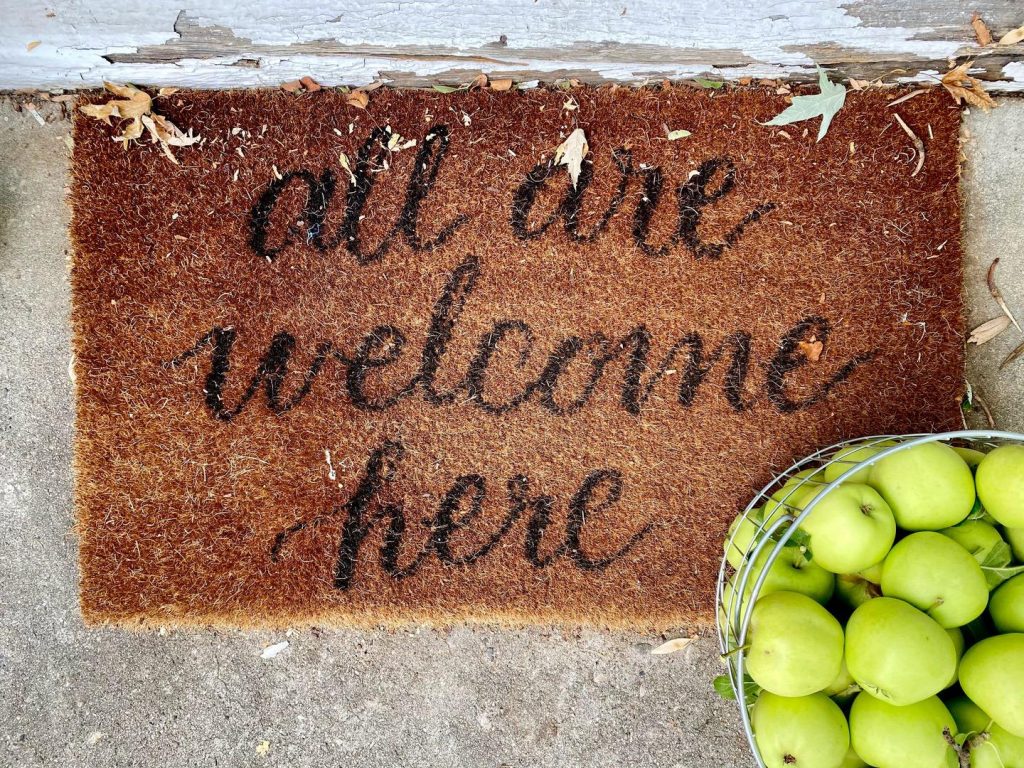
To this day, it is appropriate when visiting a friend’s place for the first time to say something along the lines of, “What a nice place you have here!” It’s just a kind and appropriate thing to say. Sometimes we wholeheartedly mean it, and sometimes we say that out of courtesy. It is not always a comment on how much we enjoy their taste in home décor or their selection of furniture, or even the location and style of their home. But its origin is not in politeness or vanity. Its origin is part of the revealed character of God, who both provides shelter for His creation and first seeks to bless. So the idea of hospitality and seeking to bless others upon greeting them is all through the Scripture.
This in mind, it is hardly surprising to hear Christ’s instructions to the traveling Gospel minister, “As you enter the home, give it your greeting. If the home is deserving, let your peace rest on it; if it is not, let your peace return to you.” Luke puts it this way, “When you enter a house, first say, ‘Peace to this house.’ If a man of peace is there, your peace will rest on him; if not, it will return to you.”
Blessing a house might seem strange, but the blessing is not for the house itself. It is in recognition that the visitor brings the presence of God with them, and ultimately meant for the people who dwell there. Commentator John Nolland says, “Though only a standard Jewish greeting, in the present context it has become an anticipatory bestowal of the blessings of the coming kingdom of heaven. With this precious new significance it seems improper to mis-bestow it. The disciples are, however, told not to worry about that possibility. Their bestowal of peace will function like the benefit bestowed by the baptism of John: the significance of the act will be determined by the manner in which it is received.”
Read that again, “The significance of the act will be determined by the manner in which it is received.” Isn’t it so with so much of the Kingdom of God in the here and now (before God’s physical return to earth)? Recall how John baptized people and then warned them, “Produce fruit in keeping with repentance.” John wanted them to know that the blessing of baptism for repentance is only as sure as the obedience of the one who repents. Those who went through John’s baptism and didn’t repent (or even intend to) cannot escape God’s judgment. God cannot be fooled by behaviour that doesn’t fool us.
Jesus told us to ‘baptize’ (in a manner of speaking) a residence when the presence of God’s Spirit in us enters said residence as we walk into it. Then, whether that blessing gets attached to the person who occupies the home or not becomes entirely dependent on whether that person co-operates with the Spirit of God or offends (grieves) the Spirit of God. If there is a foothold for the holiness of God’s blessing there, God’s blessing stays there. If not, then not. It is for this reason that showing hospitality to the people of God is so helpful, because they always leave a blessing wherever they stay. For as the Spirit of the Lord goes, so goes the blessing!
Throughout the saga of history, God consistently initiates relationship. He is a gracious host, constantly welcoming in wayward sinners who deserve His wrath—a people whose only hope is that He would show them underserved hospitality
Dustin Willis and Brandon Clements
APPLICATION: Intentionality
The next time you are welcomed into a home, remember to bless those who live there!

